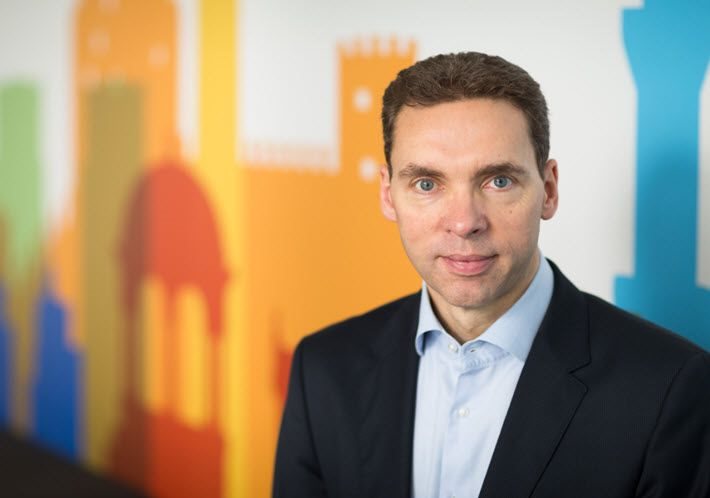The Covid-19 pandemic has paved the way for a hybrid model in education, combining digital and traditional methods of teaching and learning - but governments need to act so that progress from the past year is not lost, according to the latest report from Oxford University Press (OUP).

Nigel Portwood, CEO of Oxford University Press
The report, Education: the journey towards a digital revolution, captures insights from experts across seven markets—the UK, Brazil, South Africa, Pakistan, India, Spain, and Turkey—as well as from hundreds of teachers globally, and extensive secondary research. With the pandemic affecting more than 1.7bn students worldwide over the past 12 months, the report analyses how teachers, students, and parents adapted to new ways of delivering education, and will continue to utilize digital learning tools and resources to shape educational practice in the future.
In South Africa, specific issues such as a lack of digital devices for students and how much data online learning would use up were major barriers that severely hampered learning, as well as poor internet connectivity in general. These ongoing challenges mean that our experts believe that more support is required to facilitate learning, and that infrastructure in schools will need to be improved to enable a hybrid learning model. The experts consulted in the region scored South Africa scored the country’s response transitioning to digital as 2.3/5 – one of the lowest of all markets surveyed.
While there were clear regional trends surveyed, there were also similarities across all markets:
- 98% of OUP’s experts said they believe digital learning will be firmly embedded in teaching practices in the future.
- The factors deemed to have impacted the most on the effectiveness of digital learning were socio-economic barriers (79%) and uncertainty in day-to-day life caused by the pandemic (74%).
- Long-term impacts of the pandemic such as the digital divide and the impact on wellbeing need to be addressed; 70% of OUP’s experts concluded the shift to digital learning has raised concerns about student wellbeing, and 85% believed that learners from disadvantaged backgrounds have fallen behind their more advantaged peers.
- Curricula needs to evolve so that learners develop the core skills needed to navigate future uncertainty and become ‘digitally fluent.’
Drawing on the insights, OUP is urging governments and educators globally to address the challenges brought about by a year of educational disruption and ensure that positive developments from the past year are not lost. Key recommendations include:
- Governments should actively collaborate and learn from teachers and students and use their recent experiences to inform future policy and curriculum development.
- Governments need to work with institutions to address the digital learning divide, not just now, but for the future too.
- Wellbeing must be considered as part of education policy as digital becomes increasingly embedded in education¬—including support for teachers and parents.
- Curricula should evolve to provide learners with the skills they need to be both digitally fluent, and adaptable to whatever the future holds.
Speaking about the research, Nigel Portwood, CEO of Oxford University Press, said: ‘The coronavirus pandemic has, unsurprisingly, prompted a rapid increase in the adoption of digital learning. As we start to reimagine what education may look like in the future, it is imperative that the government—and indeed, governments all over the world—learn from those who have been on the frontline, delivering and receiving learning. We have a huge opportunity to learn from all our experience to develop education systems that will work for both local and global society.

























































